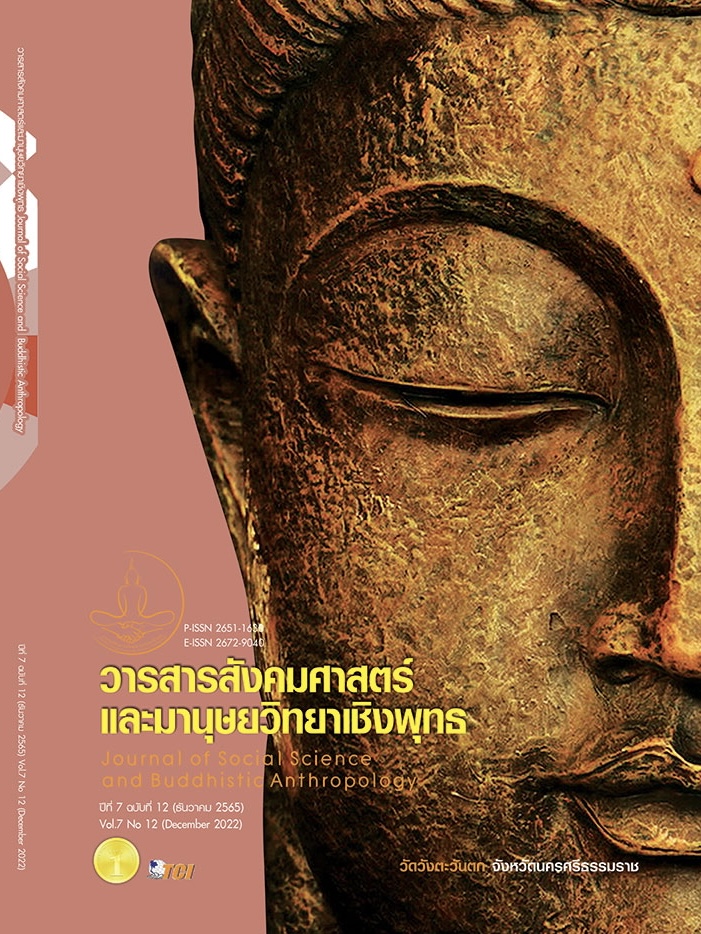DISCUSSING THE CAMPAIGN TO PREVENT GEN Z FORM TO SMOKERS
Keywords:
Discussing, Campaign, Young Smokers, Gen Z Gen StrongAbstract
The campaign to prevent Generation Z to become new smokers has an objective which is to take off the lesson-learned in the campaign to prevent the Generation Z to become a new smoker by using Qualitative Research methods through in-Depth Interview methods and Purposive sampling. This is a campaign to protect the Generation Z from smoking which is carried out by Action on Smoking and Health Foundation Thailand. The results showed that the factors were related to smoking initiation of the new smokers. The factors were family or close friends, friends, advertising of cigarette company. Because of smokers have easily way to access and to purchase of cigarettes in online channel. The principle to prevent the Generation Z is from smoking project. It consists of 5 campaign principles as follows 1) Understanding the problem and planning of the campaign 2) Analyzing the target group 3) Campaign funding 4) Campaign activities and 5) Monitoring and evaluation. Based on cigarette manufacturers' strategy, the project's leading target group is youth between the ages of 7 - 20 years. The key issue contributing to success of the campaign was in a detailed and comprehensive in the campaign. We need to plan consistent with the components which associated with new smoker initiation of smoking. Moreover, it has to combine a variety of communication tools and provide opportunities for the target groups to participate in several steps which encourages the target group to have power and energy to drive this campaign fully. It counted as a “Social Innovation” of driving this campaign to prevent new smokers. However, the future campaign will plan to consider expanding the age of the target group or adjust the strategy of other campaigns currently underway to cover new smokers aged between 19 to 24 to increase the effectiveness of the protection of new smokers in Thailand.
References
กรมประชาสัมพันธ์. (2562). กระทรวงสาธารณสุข ร่วมกับภาคีเครือข่ายควบคุมยาสูบ ลดอัตรากาบริโภคยาสูบลงอย่างน้อยร้อยละ 30 เพื่อลดปัจจัยเสี่ยงโรคไม่ติดต่อเรื้อรัง. เรียกใช้เมื่อ 8 กรกฎาคม 2565 จาก https://thainews.prd.go.th/th/news/detail/ TCATG190728194429677
การยาสูบแห่งประเทศไทย. (2565). งบการเงินสำหรับปีสิ้นสุดวันที่ 30 กันยายน 2564 และรายงานของผู้สอบบัญชีรับอนุญาต. เรียกใช้เมื่อ 6 กรกฎาคม 2565 จาก https://www.thaitobacco.or.th/th/wpcontent/uploads/2022/02/F99_2564_S207_30092021.pdf
จำเนียร จวงตระกูล. (2561). ปัญหาการกำหนดกลุ่มตัวอย่างและวิธีการสุ่มตัวอย่างในการวิจัยเชิงคุณภาพ. วารสารบริหารธุรกิจและสังคมศาสตร์ มหาวิทยาลัยรามคำแหง, 1(2), 1-21.
บุญเลิศ ศุภดิลก. (2558). การสื่อสารกับการพัฒนา . นนทบุรี: มหาวิทยาลัยสุโขทัยธรรมาธิราช.
มนทรัตม์ ถาวรเจริญทรัพย์. (2564). รัฐอ่วม! ควักจ่ายไทยสูบบุหรี่ป่วย 4 โรคร้ายต่อคนสูง 6 ล้านบาท. เรียกใช้เมื่อ 6 กรกฎาคม 2565 จาก https://www.trc.or.th/th/ข่าวสาร/ข่าวเผยแพร่/ข่าวสารบุหรี่/582-รัฐอ่วม-ควักจ่ายไทยสูบบุหรี่ป่วย-4-โรคร้ายต่อคนสูง-6-ล้านบาท.html
มูลนิธิรณรงค์เพื่อการไม่สูบบุหรี่. (2561). โครงการปกป้อง Gen Z จากการสูบบุหรี่. เรียกใช้เมื่อ 14 เมษายน 2565 จาก https://genzstrong.com/aboutus
สำนักงานกองทุนสนับสนุนการสร้างเสริมสุขภาพ. (2564). ‘เรื่องลับควันพิศวง’ ป้องกันเยาวชนเป็น ‘นักสูบหน้าใหม่’. เรียกใช้เมื่อ 13 เมษายน 2565 จาก https://www. thaipost.net/main/detail/89971
สุระชัย ชูผกา. (2562). หลักรณรงค์: เปลี่ยนโลกได้ด้วยมือเปล่า. กรุงเทพมหานคร: กู๊ดเฮด พริ้นติ้งแอนด์ แพคเกจจิ้งกรุ๊ป.
Farmer, J. et al. (2018). Applying social innovation theory to examine how community co-designed health services develop: using a case study approach and mixed
methods. BMC health services research, 18(1), 1-12.
Rhule, E., & Allotey, P. A. (2020). Researching social innovation: is the tail wagging the dog? Infectious diseases of poverty, 9(1), 1-5.
Downloads
Published
How to Cite
Issue
Section
License

This work is licensed under a Creative Commons Attribution-NonCommercial-NoDerivatives 4.0 International License.









